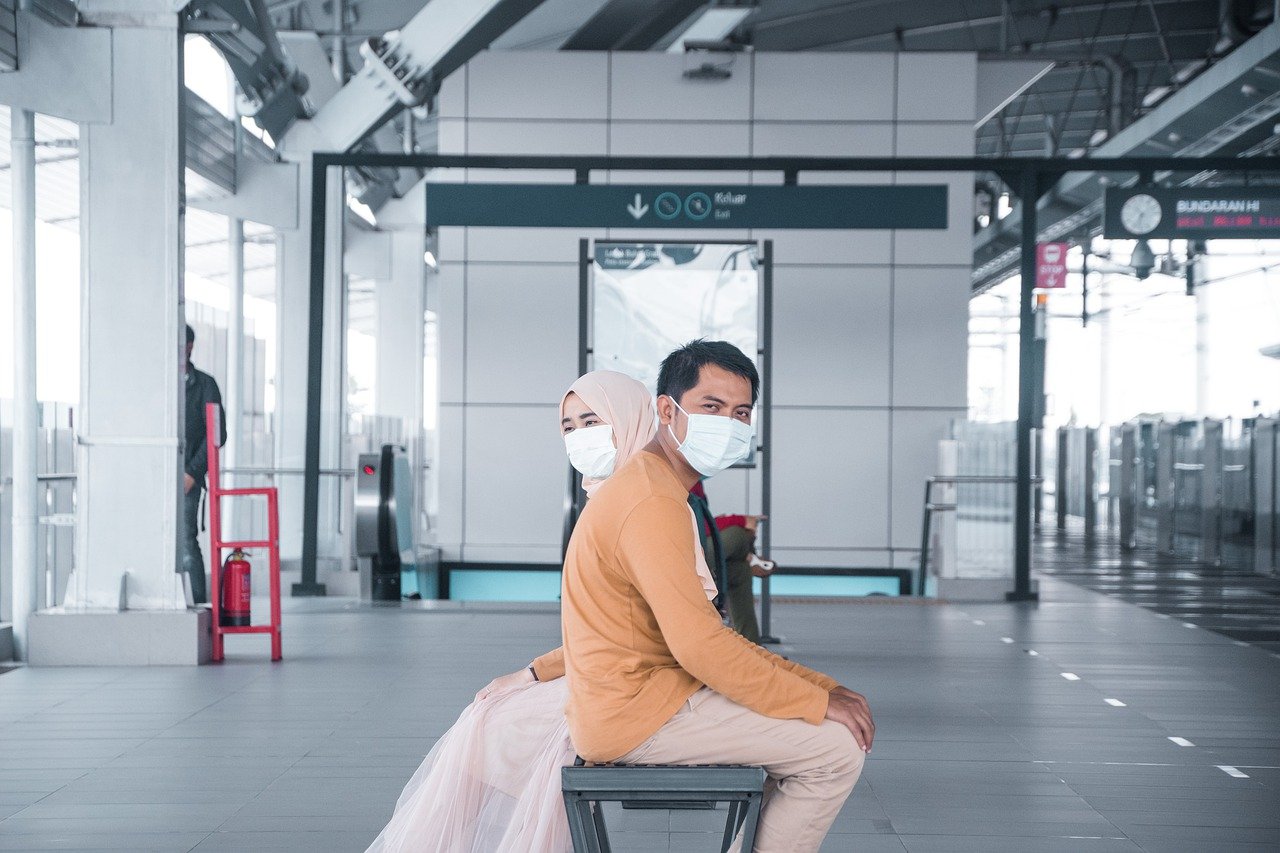One of the first thing that he mentioned is that COVID-19 will soon become "endemic" in Malaysia and we'll have to learn to live with the virus.
But what does "endemic" mean?:@Khairykj -“COVID-19 will become endemic. We have to learn to ‘Live with the Virus’. We will need to adapt our behaviours, be guided by science in simplifying our SOPs, and work together to achieve this.”
— Dimishtra (@dimishtra) September 1, 2021
Let us explain:
The virus ain't going nowhere
After almost two years and having our hopes dashed every time the world thinks we've come close to overcoming the threat of COVID-19, it kind of makes sense to just accept that the virus will probably be around for some time yet.With new variants cropping up and vaccines proving to help minimise the impact of the virus but not really stop the spread of it, we have to find a way to move forward.
This is what the country will possibly be doing after the end of October when at least 80 per cent of the population have received the COVID-19 vaccination.
Before we get into what "endemic" would possibly mean in COVID-19 context in the country, let's first understand a few terms.

When talking about the spread of a virus, like COVID-19, H1N1, SARS and others, there are three main classification used: epidemic, pandemic and endemic.
1) Epidemic
Before COVID-19 was classified as a pandemic, it was classified as epidemic. This is because the spread of the virus was believed to have been contained within a certain geograpical area.According to Dictionary.com, epidemic means “affecting many persons at the same time, and spreading from person to person in a locality where the disease is not permanently prevalent.”
Basically, when the virus spread is contained and not expected to last forever. For example, the polio outbreak in Sabah in 2019. Since most of the country is vaccinated against polio and the virus was detected early, it was contained and did not spread to a huge area.
2) Pandemic

Ahh... we are all so familiar with this word by now but what does it mean? It took awhile for World Health organisation (WHO) to declare COVID-19 as a pandemic.
This is because there are a few criteria to determine if the spread of a virus is considered a pandemic.
It starts off as an epidemic but spreads and becomes “prevalent throughout an entire country, continent, or the whole world.”
Although a disease can be classified as pandemic even if it involves only one country, usually the big, scary term is reserved for diseases that has spread to several countries and continents.
3) Endemic
The dictionary definition of the word is "adjective that means natural to, native to, confined to, or widespread within a place or population of people."This is sort of the next natural progression when a virus doesn't go away, sort of like dengue. Every year, many countries in the world record thousands of dengue cases and deaths.
Scientists are still working on ways to eradicate the disease. Sounds scary, but when a disease reaches this stage, it's usually more controlled and we know how to prevent its spread.
What could endemic possibly mean for Malaysia?

In the case of COVID-19, we will most probably resume "normal" lives where all economic sectors, schools and other places that have been closed will be open.
However, the mandatory mask wearing as well as other precautions such as getting vaccinated, maintaining social distancing and good hygiene will still be in practice.
There aren't enough information from the government to be sure what exactly it will mean, but we sure hope that it also includes options and restrictions such as continued "work from home" or hybrid system options for those who can, only allowing vaccinated people or those who cannot get vaccinated for legit reasons (age, allergies and other medical conditions etc) to dine-in or attend public events, travel for tourism purposes and more.
TL/DR: Endemic basically means we will have to live normal lives but continue to take precautions against the virus.
Are you ready to live with COVID-19 for the rest of your life? We certainly hope so.
